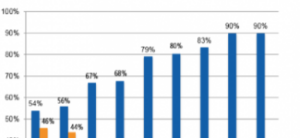12 Actionable Recruiting Strategies to Optimize Hiring
In today’s digital economy, companies must adopt 12 recruiting strategies to stay competitive and attract top talent. With growing competition for skilled professionals, hiring teams must embrace data-driven, proactive, and efficient recruiting processes.
To stay ahead, recruiters need to:
- Think critically and analytically
- Execute repeatable, high-impact hiring processes
- Leverage technology to enhance efficiency
- Align recruiting efforts with corporate revenue goals
The modern hiring landscape requires Talent Acquisition teams to work faster and smarter while standardizing processes to drive peak effectiveness.

Why Recruiting Strategies Matter in Today’s Competitive Market
The demand for highly skilled professionals is at an all-time high. Companies that fail to optimize their recruiting strategies risk losing top talent to more agile competitors.
The best way to overcome these challenges is by adopting structured, data-driven recruitment processes. Below are 12 recruiting strategies that will transform your hiring success.
1. Build & Nurture Talent Communities
Proactively engage with candidates before job openings arise. Use LinkedIn, career fairs, and talent pools to keep a pipeline of top-tier candidates ready.
2. Pipeline Candidates for Future Needs
Develop strategic hiring plans that identify recurring job openings. This helps recruiters stay ahead and reduces time-to-fill.
3. Mine Existing Resume Databases
Use ATS and CRM tools to search previous applicants and re-engage qualified candidates.
4. Reduce Applicant Abandonment Rates
Simplify the online job application process to prevent drop-offs. Ensure mobile optimization and a user-friendly career site.
5. Implement Standardized Hiring Processes
Create structured workflows that ensure consistency in sourcing, screening, and interviewing.
6. Leverage Predictive Analytics
Use AI-powered hiring tools to predict candidate success and improve hiring decisions.
7. Set & Measure Key Performance Indicators (KPIs)
Track recruiter productivity, time-to-hire, and quality-of-hire to continuously refine processes.
8. Align Hiring Goals with Revenue Impact
Educate recruiters on the financial impact of unfilled roles. Prioritize urgent hiring needs based on business objectives.
9. Match Recruiter Experience with Role Complexity
Assign experienced recruiters to critical roles and newer recruiters to less complex positions.
10. Enhance Candidate Experience
From the first interaction to onboarding, create a seamless and positive candidate journey to attract top talent.
11. Offer Competitive Compensation for Recruiters
Invest in your recruitment team by providing competitive salaries, performance-based incentives, and ongoing training.
12. Prioritize Continuous Training & Development
Equip recruiters with advanced sourcing techniques, ATS training, and negotiation skills to improve overall performance.

Final Thoughts: Building a Scalable Talent Acquisition Process
When organizations tie recruiter performance to measurable business outcomes, they gain better insight into talent gaps and hiring inefficiencies. Implementing these 12 recruiting strategies will enhance hiring success, streamline processes, and drive long-term growth.

Check out our Staffing Firm Solutions for expert consulting and optimization services.



